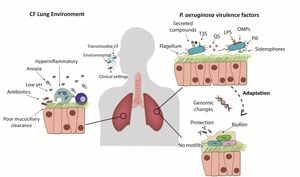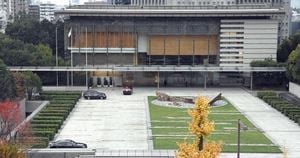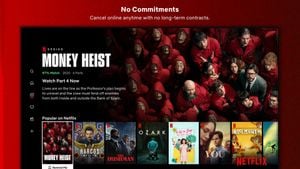The Liberal leadership debate kicked off on February 24, 2025, with candidates Mark Carney, Chrystia Freeland, Karina Gould, and Frank Baylis sharpening their positions on how Canada should navigate its challenging relationship with U.S. President Donald Trump. The French-language debate, moderated by former TVA-Québec anchor Pierre Jobin, brought forth heated discussions centered around Trump’s threats against the Canadian economy and sovereignty.
At the heart of the debate was the impending economic uncertainty as Trump prepares to impose tariffs on Canadian goods—set to begin next month. Carney, the former governor of the Bank of Canada and expected front-runner, asserted the necessity to fortify Canada’s own economy and leverage its resources, stating, “Trump of today, he isn’t the same as before. He’s more isolationist, more aggressive. Before, he wanted a piece of our economy. Now, he wants our country.” He emphasized the importance of immediate economic reinforcement to boost Canada’s negotiating strength.
Freeland, former finance minister, adopted a more confrontational stance, branding Trump as the greatest threat to Canada since World War II. She proposed implementing counter-tariffs against the U.S. and suggested levying tariffs as high as 100 percent on Tesla vehicles. “We can stand up to him and we can win,” she declared, recalling her experience negotiating during Trump’s previous presidency.
Gould, the former government House leader, insisted on the need for diplomacy yet recognized the importance of strength. She suggested the federal government assist Canadian businesses to diversify markets beyond the U.S. “We need to understand the Canadian businesses have a lot to offer the world,” she stated, aiming to build Canada’s trade relationships internationally.
Baylis, on the other hand, criticized the very notion of negotiating with Trump, arguing it is futile since Canada already has trade agreements largely ignored by the U.S. president. He advocated for new economic alliances with the United Kingdom, Australia, and New Zealand as Canada seeks to redefine its global partnerships.
Beyond trade, the candidates also laid out their visions for healthcare, tax reforms, immigration policies, and other pressing issues for Canadians. Addressing healthcare, Baylis, who boasts expertise from years within the medical technology field, revealed his plan to “build the best healthcare system in the world.” He proposed introducing more nurse practitioners and empowering pharmacists with greater diagnostic responsibilities. Freeland pitched recruiting healthcare professionals from the U.S., and Carney spoke about utilizing artificial intelligence to improve healthcare delivery.
The candidates discussed affordability with Freeland advocating for middle-class tax reductions, the introduction of 100,000 new daycare spots, and affordable housing initiatives. Carney mirrored these sentiments with his commitment to cutting taxes for middle-class families and investing more heavily in childcare support.
On immigration, Baylis suggested controlling numbers for sustainability, whereas Carney acknowledged Canada's housing crisis, calling for temporary caps on immigration to stabilize the system. Freeland maintained Canada should be welcoming but emphasized the need for sufficient social services to support newcomers effectively.
Carney, during discussions about national security, stressed the importance of securing the Canada-U.S. border, especially concerning illegal weapons, echoing concerns raised about rising crime rates. He argued for enhanced investments in police and surveillance systems, emphasizing it's “crucial to have the right tools to protect Canadians.”
When the conversation shifted to international relations, Freeland underscored Canada’s support for Ukrainians amid their conflict with Russia, advocating for the use of seized Russian funds to aid the Ukrainian defense efforts. Gould echoed similar sentiments, aligning Canada firmly with European allies.
With little time before the party’s vote begins, these debates represent one of the last significant opportunities for candidates to convey their messages to Liberal party members, with the winner to be announced on March 9, 2025. The pressure builds on these candidates as they vie not only for the leadership of their party but also for the office of Prime Minister, especially with opinion polls indicating heightened competition against the Conservatives.
Throughout the evening, there were subtle jabs at Conservative Leader Pierre Poilievre, with Carney, Freeland, and Gould criticising his perceived admiration for Trump and questioning his ability to effectively unite Canada against external threats. Carney condemned Poilievre's approach as divisive, contending he is not capable of providing the necessary leadership to counter Trump's influence.
The debate was not only significant for the immediate political climate but also for the way it framed future policy directions of the liberal party, with candidates laying bare their priorities and strategies for any upcoming challenges. With supporters eagerly anticipating the outcome, it is clear this leadership contest is set against the backdrop of unprecedented challenges posed by international politics and the shifting dynamics within Canada itself.
Advance voting for party members is set to commence soon, as the nation watches closely to see who emerges as the successor to Justin Trudeau and the new champion of the Liberal party at such a pivotal moment for Canada.



